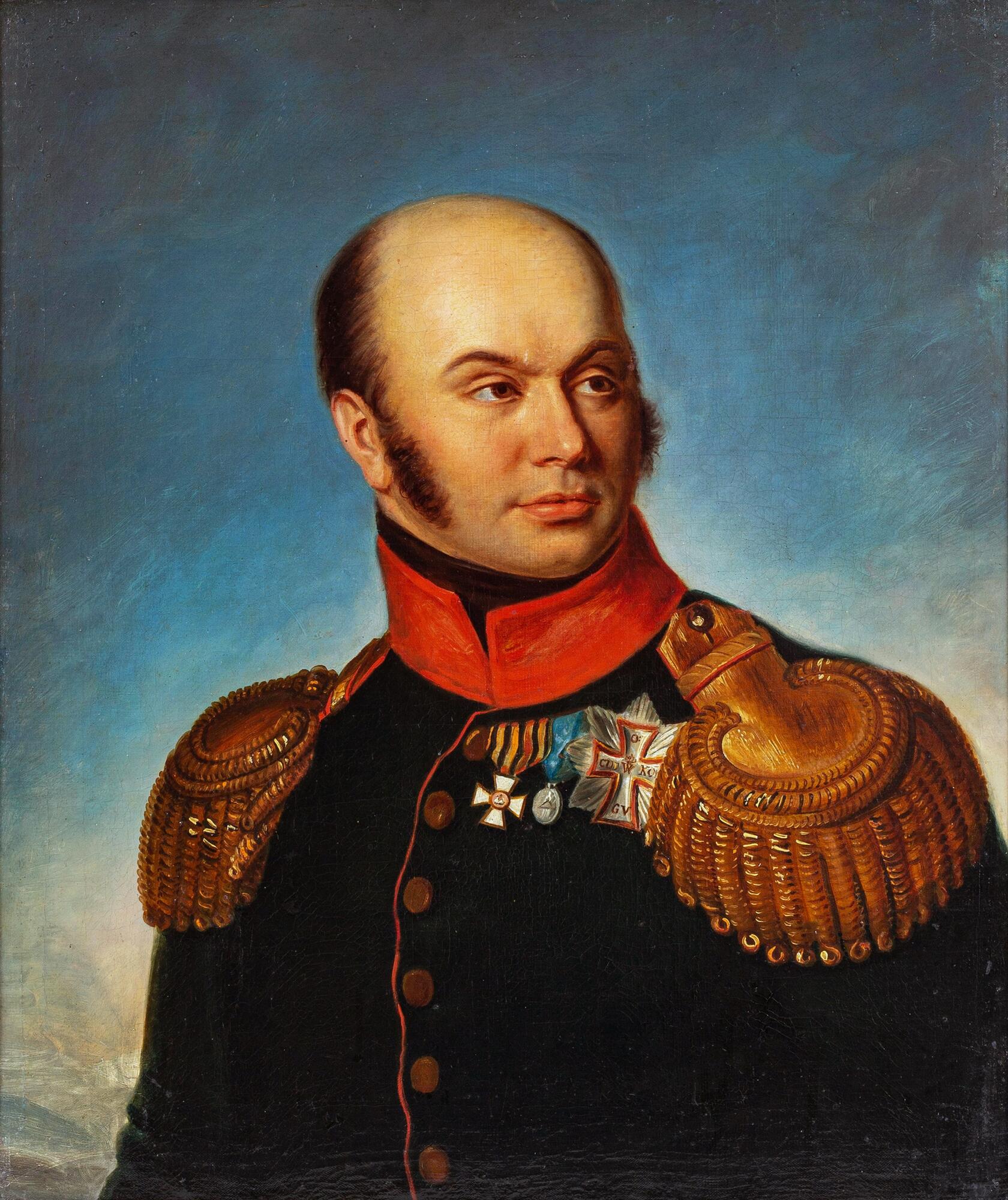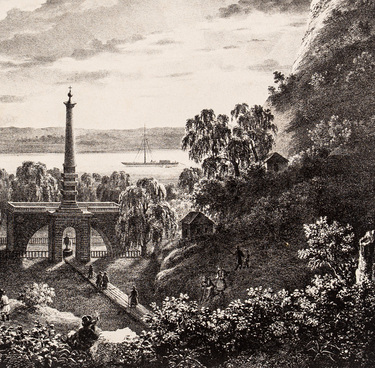The oil painting collection of the National Pushkin Museum includes a portrait of Mikhail Fyodorovich Orlov, a hero of the Patriotic War of 1812.
In 1805, Junker Mikhail Orlov participated in the Battle of Austerlitz, “showed remarkable bravery” and was awarded a Golden Sword. In 1814, he was “honored to be the first to pass the Austerlitz Bridge to mark the surrender of Paris, ” for which he received the rank of major general. A year later, upn his return from foreign campaigns, he submitted to the tsar a petition with a request to abolish serfdom in Russia. In 1817, Orlov was “removed” to Kyiv, where he served under Nikolay Nikolaevich Raevsky Sr.
In 1820–1822, he commanded the 16th Infantry Division stationed in Chisinau. In his division, which the soldiers called “Orlovshina”, he established the Lancasterian System. One of his very first orders abolished corporal punishment for soldiers. It is not surprising that soon the general was removed from command.
According to Mikhail Orlov himself, he was “the first in Russia to conceive a plan for a secret society”, which was supposed to consist of “the most honest people to fight against corruption and other disorders, which are too often exposed in the internal administration of Russia.” This secret society, the “Order of Russian Knights”, was established in 1814. Mikhail Orlov led the Chisinau Branch of the Union of Prosperity (a larger secret society of the Decembrists). Princess Maria Nikolaevna Volkonskaya in her notes calls him “one of the main figures of the society.” In 1821, at the Moscow Congress, Orlov announced his exit from the secret society, but undoubtedly maintained the closest relations with some of his former comrades. On December 21, 1825, Mikhail Orlov was arrested and imprisoned in the Peter and Paul Fortress. Six months later, the highest resolution was signed to dismiss him from service forever, without appointing him to any other positions. The resolution took into account “his previous excellent service and the punishment of six months’ detention in the fortress”. Orlov was to live in the village without leaving.
In 1831, Mikhail Orlov received permission to
settle in Moscow. Alexander Pushkin met Mikhail Orlov in St. Petersburg in 1817
upon graduation from the Lyceum. They both were members of the Arzamas Society.
They still communicated even when Pushkin was in the south: in Kamenka, Kyiv,
and Odessa. They often met in Chisinau, where both were then serving. Ekaterina
Nikolaevna Orlova wrote to her brother Alexander,


